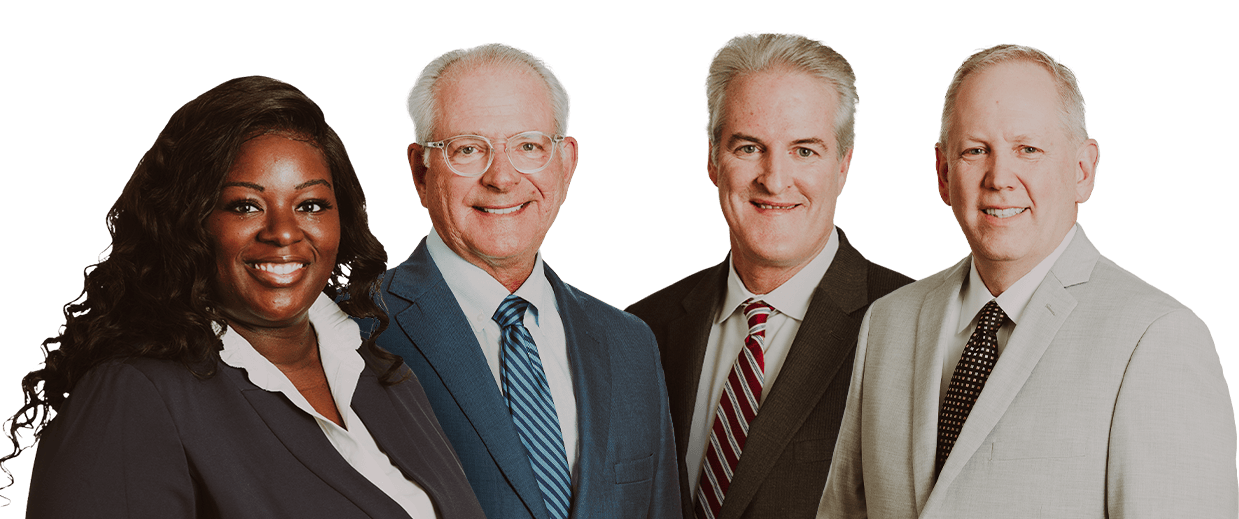Out-of-Pocket Expenses
Injuries can result in substantial damages. Damages may include non-economic damages, such as pain and suffering, emotional distress, and loss of enjoyment of life. However, your damages may also include economic damages, including lost wages and medical bills.
However, many people injured in an accident forget to include out-of-pocket expenses in their settlement demand. These expenses can total thousands of dollars. Therefore, it is essential to document out-of-pocket costs as part of your injury claim.
Examples of out-of-pocket expenses in a personal injury case include:
Cost of Personal Care
After a car accident or another injury, you may require assistance with the activities of daily living. These activities include bathing, dressing, and feeding. You may also need help with household chores, such as washing dishes, mowing the lawn, and cleaning the bathrooms.
If you cannot perform these tasks, you might have to hire someone to assist you. That is an out-of-pocket cost related to your personal injury case. Make sure you keep excellent records, including copies of invoices and payment receipts, to document this expense.
You may incur out-of-pocket costs related to your medical care. These costs are in addition to doctor’s bills, hospital fees, and physical therapy costs. Out-of-pocket expenses include:
- Over-the-counter medications
- Medical supplies
- Prescription medications
- Medical equipment, including wheelchairs, slings, respirators, crutches, etc.
- Costs of hotel stays and meals when your medical treatments require travel to another town
Keep detailed records of these expenses. The insurance company will not reimburse you for costs related to medical treatment without documentation proving you paid the cost.
Transportation Expenses
Completing your treatment plan may require you to attend multiple medical appointments each week. For example, you may need to attend physical therapy, go to the lab for blood work, and visit the doctor. Expenses related to the cost of travel to and from medical appointments are included in out-of-pocket expenses.
Expenses for travel include:
- Mileage to and from medical appointments
- The cost of public transportation, such as taxis, buses, and trains
- Rideshare services, including Uber and Lyft
- Parking fees
- Rental car expenses (generally related to a property damage claim)
As with all other out-of-pocket costs, you must keep detailed records of these expenses. For mileage reimbursement, note the beginning and ending number on the odometer and the date, location, and reason for the appointment. Rideshare services keep track of expenses in the app. If you use public transportation, note each trip’s date, location, reason, and cost.
When Do I Receive Reimbursement for Out-of-Pocket Expenses?
Your out-of-pocket costs are included in your settlement demand. However, you will not receive reimbursement for these costs until your injury claim settles.
The timeline for a personal injury case depends on many factors, including the severity of your injuries. Therefore, we do not want to settle your case until you complete your medical treatment.
Until that time, we cannot accurately calculate the value of your damages. If you were to sustain permanent impairments, it could significantly increase the value of your personal injury claim.
Who Pays for My Out-of-Pocket Expenses After an Accident?
The person who caused your injury can be held financially liable for all damages, including out-of-pocket costs. However, many injury claims are covered by liability insurance. Therefore, most injury claims are handled by an insurance company.
The insurance company reviews your claim for damages and calculates the value it believes your claim is worth. However, insurance companies often undervalue claims.
An insurance adjuster may say that your out-of-pocket expenses were unreasonable and unnecessary. If so, you have the burden of proving that each disputed expense was necessary and reasonable.
Proving that an out-of-pocket cost was necessary may require a statement from your physician. For example, your doctor can explain why your injuries prevented you from performing household chores. Furthermore, your doctor can explain why you needed specific medical equipment or medical supplies.
Proving that an expense was reasonable might require obtaining two or three cost comparisons. For example, noting the cost of a wheelchair from three medical equipment suppliers to prove the cost you paid was reasonable.
Documenting your out-of-pocket expenses and gathering evidence can be time-consuming. However, it is well worth the time and effort to receive reimbursement for these costs. Our legal team assists as much as we can in documenting your damages to ensure that you receive all the money you are entitled to recover for a personal injury claim.
Schedule a Free Consultation With Our Florida Personal Injury Lawyers
You deserve to be compensated for all losses incurred because of a personal injury. Our Florida personal injury attorneys assist you in documenting your damages to maximize the amount you might receive for a personal injury claim.
Our lawyers accept personal injury cases on a contingency fee basis. Contact our law firm to schedule a free consultation with one of our experienced injury lawyers in Clearwater, FL.

We treat you like family.
If you can’t come to us, we’ll come to you.
Representing Accident Victims in Tampa Bay since 1955



-
“Friendly knowledgeable and kept me informed about my case. Any offer, bill or question was readily answered. Would definitely recommend and refer people to Bryan Caulfield and his team!!”- Betty B.
-
“Mrs Bryant works her butt off to make sure you get what is do to you in medical and beyond! They won’t take your case if they don’t feel you haven’t been wronged.”- Christine R.
-
“Working with Mark Perenich on my auto injury case was an absolute game-changer. From the very beginning, he brought a level of professionalism, expertise, and care that immediately put us at ease.”- Kerry B.
-
“Lorrie and Allyson are phenomenal. I highly recommend them to anyone. It seemed like a never ending journey but I can’t thank them enough for diligently fighting my case with the greatest integrity, support and prayers.”- Former Client
-
“Allyson has been so helpful with navigating the disability process for my husband!”- Kaitlyn S.
-
“It honestly couldn’t have gone better. Pretty much perfect.”- Andreas B.
-
“From the first day we met this law group I felt very comfortable and knew we would be well taken care of. This was our first experience filing for SSD, and was not disappointed. The lawyers are awesome and very professional.”- Shari J.
-
“Very nice they worked with you. Never ignored me with my case. Always on top to work with you. Thank you so much for all that you have done to help me! Very highly recommend.”- Margarita O.
-
“My appointed attorney was Jacqueline, Bryant. She is very compassionate about her client and work. When it comes to negotiation, she's a Beast and she gets the job done.”- Alaina J.


We’ve been proudly serving Clearwater, St. Petersburg, and the Tampa Bay area for generations. As the first personal injury law firm in Clearwater, our dedicated legal team brings over 300 years of combined experience to each and every case. If you’ve been injured and need support, please reach outtoday for a free consultation, we are here to help you.



















